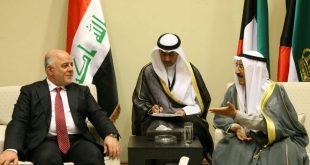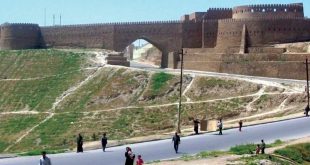The American Defense Minster Ashton Carter visited Baghdad on April 17th of this year. The visit was no surprise as described by some; in fact it is considered to be in the framework of discussion and coordination with the Iraqi Government in regards to the war against ISIS. In addition, the American Minster has conformed Washington’s stand to continue to provide Logistic, advisory, and informative support to the Iraqi Forces without direct intervention. This stand is not anything new; however, what is new is the following:
Washington’s transition to widening the military support to include more feasibility in engagement rules through special military operations by special forces “Airdropping”, using more advanced offense fighter planes in chasing ISIS’s leaders, monitoring their moves, and eliminating or arresting them, in addition to deploying heavy defense units to support the Iraqi Forces according to the Pentagon’s declarations, also sending more military consultants to escort the Iraqi fighting squads to the medium unit levels, and continuing the training of troops and local police forces so that they can take over liberated lands and holding on to them all the while providing some weapons and equipments that will be paid for in credit with soft loans to ease up the purchase.
Al-Fallujah and Al-Mosul file is thought to be of the main highlights in the discussions that took place between Carter, Doctor Al-Obaidi and the Defense Minster Khaled Al-Obaidi. According to the visit’s results and what was concluded, the Chairman of the Joint Chiefs of Staff Joseph Dunford reached Baghdad just after the American Minster departed, so as to translate what was agreed upon into collaborative coordinated tasks on the ground and on air through the International Alliance’s Air force.
It’s thought in the Iraqi capital that the American Minister made political efforts between Baghdad and Riyadh to bring the two sides’ points of views closer together, which presumably took place after his meeting with the Deputy Crown Prince Mohammad Bin Salman according to a royal invite to Al-Abadi to visit the kingdom to discuss the files of common interests between them, mainly being the war against terrorism and the expected role from the countries of the Cooperation Council for the Arab States of the Gulf, with whichever serves Washington’s policy that counts on delegating the region’s countries in the mission of directly fighting ISIS.
We conclude from the American demeanor that Washington doesn’t want to intervene or get involved in the war against terrorism anymore than they need for securing and protecting their interests and national security. No surprises can be expected during the remaining time of president Obama’s presidency, and even the next president will be constrained by the same current rules and conditions, except in two emergent situations which are:
- The USA gets subjected to a dangerous terrorist attack within their land.
- The USA’s interests and the American citizen security overseas gets put in jeopardy.
Only then we can consider a dramatic change in Washington’s policy and strategy that reflects on behalf of its president that this current year – and till its end – will witness the execution of missions leading to the next Mosul battle. This means that the war is far from over, very complex, and still needs more bloodshed and recourses for the foreseeable future at the very least.
 Dheyaa Alwakeel
Dheyaa Alwakeel


